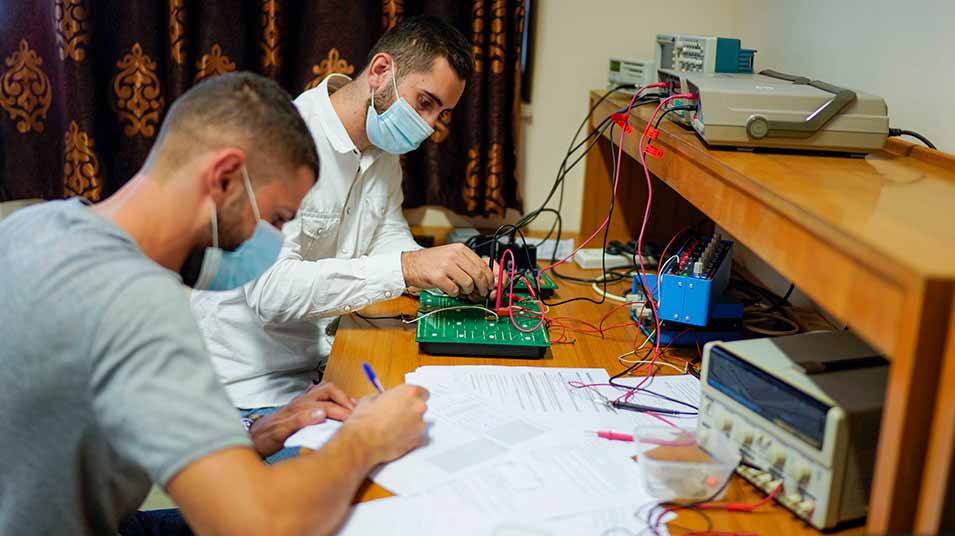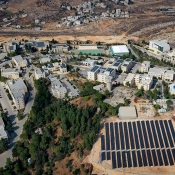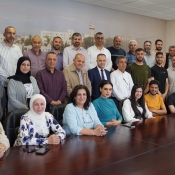New computer engineering program at Birzeit University opens pathways to local and regional advancement
Students, IT professionals, and technology consultants who wish to expand their knowledge and build their capacities in integrated circuit design, computer architecture, intelligent systems, big data manipulation, or computer networks and information security can now apply to Birzeit University’s newly launched master’s program in computer engineering.
Comprising 36 credit hours, the program offers multiple specialization pathways covering the latest advancements in embedded systems, system-on-a-chip (SOC), very-large-scale-integration (VLSI) chip design, intelligent systems, big data retrieval and processing, and computer networks and information security.
From the outset, the program’s courses were all based on international standards, such as those provided by the Institute of Electrical and Electronics Engineers (IEEE), the Association for Computing Machinery (ACM), and the Accreditation Board for Engineering and Technology (ABET), to ensure that students have the proper skills and education to gain employment abroad or pursue a Ph.D.
In designing the program, faculty members in the Department of Electrical and Computer Engineering also took into consideration the conditions, and requirements, of the Palestinian market and local IT firms. The department consulted with representatives of Palestinian IT companies — some of whom sit on the department’s advisory board — to modify courses and plans in such a way that fits the market’s current situation and future ambitions.
Ahmad Alsadeh, chair of the electrical and computer engineering department, said that the program takes a two-pronged approach to the design of its courses and modules. The program, he noted, is based on a solid foundation that covers the latest theoretical frameworks and best practices and, at the same time, fits those frameworks to the needs of the Palestinian market. Such an approach, he added, allows students to develop and advance the capabilities of local companies while also having the skills and knowledge to gain employment and compete internationally.
Achieving such goals is only made possible with the unique configuration of the program, which allows students to specialize in computer architecture, hardware, intelligent systems, and computer networks and security. Alsadeh explained that students can choose from a diverse array of elective courses covering many areas and subfields of computer engineering, totaling 15 credit hours of the program’s 36.
Another strong suit of the program is the excellent faculty members who have designed the courses and who will guide the students through their research projects. The department’s faculty members, stressed Alsadeh, are experts in their fields, which include computer architecture, microelectronic chip design and testing, embedded systems, artificial intelligence and machine learning, computer networks and distributed systems, and information security, among others. Currently, the department has 25 faculty members, all of whom have prior experience in the field and valuable external relations with local and international companies and research centers.
The program’s solid theoretical foundation, distinguished faculty members with well-established research agendas, and groundbreaking research facilities, such as the Faculty of Engineering and Technology’s VLSI Lab, combine to offer a distinctive experience for students and professionals and a path to advance the Palestinian IT industry. Alsadeh noted that the department will always update the program to keep students, and the wider Palestinian community, abreast of the latest scientific and technological developments in the rapidly advancing field of information technology.








